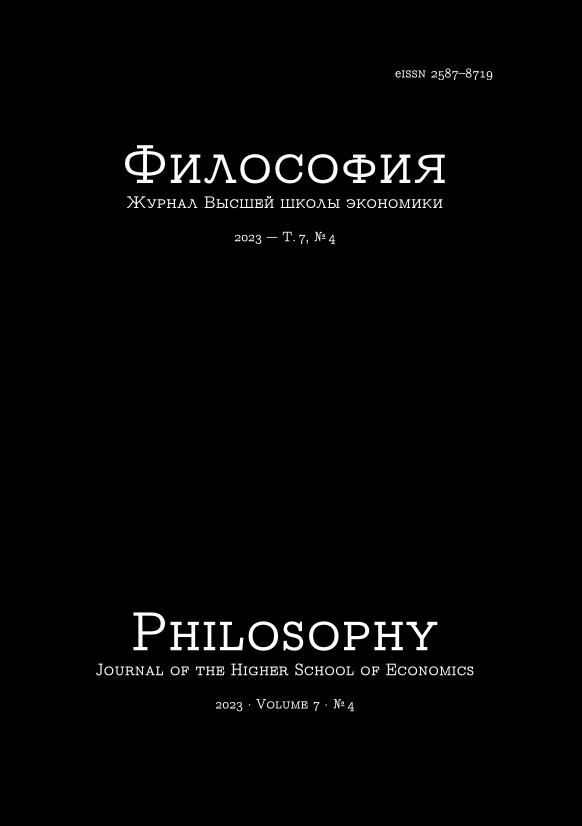Semantics of Nonviolence
Judith Butler’s Performativity of Vulnerability and Sara Ahmed’s Queer Lines
Abstract
In the article, we consider the approaches to the ethics of nonviolence suggested by Judith Butler and Sara Ahmed. Butler's project is rooted in Monique Wittig's concept of “material violence”. By extending the meaning of this term to gender and normative violence, Butler articulates the ethics of nonviolence. The latter involves concepts of radical equality and interdependence. A practical complement to the Butler project can be found in the works of Sara Ahmed, who investigates the possibility of opposing violence within institutions. She develops the concept of the “feminist ear”, based on phenomenology, which we suggest considering as a tool to implement the ethics of nonviolence. Being an attitude that can be adapted due to methodology requirements or in political practice, Ahmed's feminist ear refers to Bourdieu's metaphor of the “sharped eye” by which a researcher can objectivate their doxic (or “native”) experience. Considering these parallels, we investigate his theory of symbolic violence, internalized and reproduced in systems of dispositions. Bourdieu's striving to reveal a material side of ideology confronting that of intellectualist tradition partly matches Wittig's intuitions. By introducing the notion of habituality, we can reconsider the very question of ideology's potential overcoming that cannot be performed using intellectual endeavor. This impossibility leads Bourdieu to criticize classic phenomenology because of its ignorance of social conditions and the natural attitude. Inverting the usual working strategy of Husserlian phenomenology, he takes a natural attitude as a framework of his research, revealing the initiation rituals to the symbolic structure. The article suggests some strategies to overcome it.
Downloads
Copyright (c) 2023 Philosophy Journal of the Higher School of Economics

This work is licensed under a Creative Commons Attribution-NonCommercial 4.0 International License.






